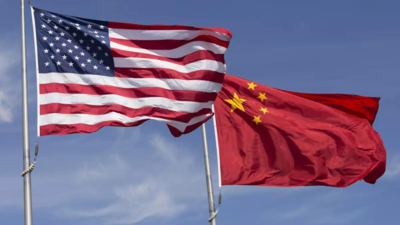U.S to propose ban of Chinese’s software and hardware in America
In a significant escalation of the ongoing tech rivalry between the United States and China, the Biden administration is poised to introduce a sweeping ban on Chinese software and hardware in connected and autonomous vehicles operating within American borders. This move, driven by concerns over national security and data privacy, marks a new chapter in the complex relationship between the two global superpowers.
National Security Concerns: A Growing Threat
The primary impetus behind the proposed ban is the fear that Chinese companies could exploit the vast amounts of data collected by connected vehicles to compromise national security. These vehicles, equipped with advanced technologies such as GPS, sensors, and internet connectivity, generate a wealth of information about drivers, infrastructure, and critical systems. There is a growing concern that this data could be used to manipulate or even disable vehicles remotely, posing a significant threat to public safety.
The Biden administration has repeatedly emphasized the risks associated with Chinese-made technology in connected vehicles. Commerce Secretary Gina Raimondo has warned of the potential for catastrophic consequences if these vehicles were to fall under foreign control, highlighting the critical role they play in modern transportation systems.
The Scope of the Proposed Ban
The proposed regulation, expected to be unveiled by the U.S. Commerce Department, will focus on prohibiting the import and sale of vehicles from China that feature key communication or automated driving system software or hardware. This includes vehicles equipped with certain Bluetooth, satellite, and wireless features, as well as highly autonomous vehicles capable of operating without a driver.
While the ban primarily targets Chinese-made vehicles, it is not limited exclusively to Chinese companies. The regulation is also expected to address technologies and components from other U.S. adversaries, such as Russia. However, the primary focus remains on China, reflecting the broader geopolitical and economic tensions between the two countries.
The Impact on the Automotive Industry
The proposed ban is expected to have significant implications for the automotive industry, particularly for automakers that rely on Chinese suppliers for components or technology. Implementing the changes required to comply with the ban could be time-consuming and costly, as it would involve redesigning vehicles and sourcing alternative components.
Automakers have expressed concerns about the potential disruptions to their supply chains and production schedules. They argue that changing hardware and software systems in vehicles is a complex process that requires extensive testing and validation. The industry is also concerned about the potential for delays in the development and introduction of new models, as they may need to be redesigned to comply with the ban.
Before the finalization of the proposed regulations, the public will be given an opportunity to provide feedback. This will allow automakers, technology companies, and other stakeholders to voice their concerns and suggestions. The Commerce Department is expected to consider public input before finalizing the rules.
The proposed ban is expected to take effect in a phased manner, with a focus on software in the initial stages. The hardware ban is likely to be implemented at a later date, giving automakers more time to adapt to the new requirements.
The U.S. government’s proposal to ban Chinese software and hardware in connected vehicles represents a significant escalation in the ongoing tech rivalry between the United States and China. While the move is driven by legitimate concerns about national security, it also has the potential to disrupt the global automotive supply chain and impact the development of new technologies.
As the debate over the proposed ban continues, it is clear that the future of connected and autonomous vehicles is intertwined with the broader geopolitical landscape. The outcome of this policy will have far-reaching implications for the automotive industry, technology sector, and the broader relationship between the United States and China.


Comments are closed.